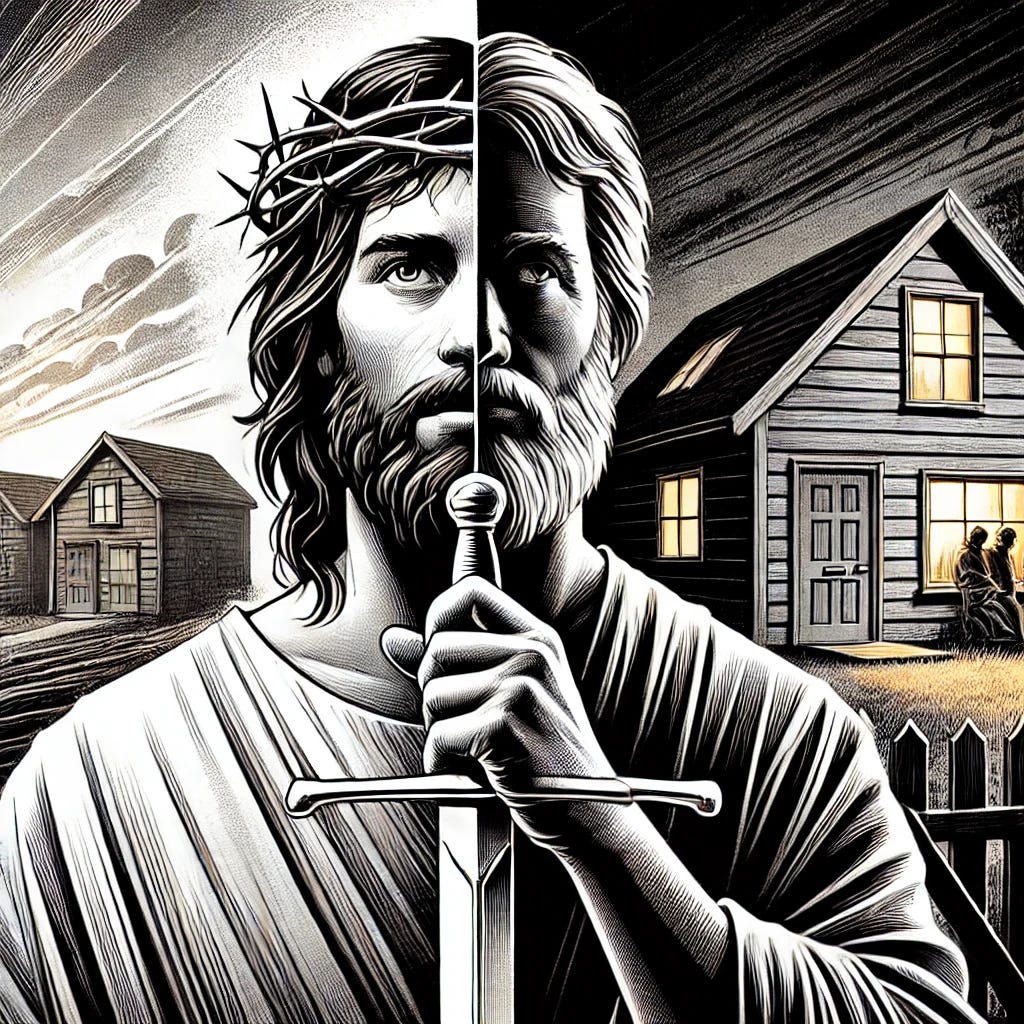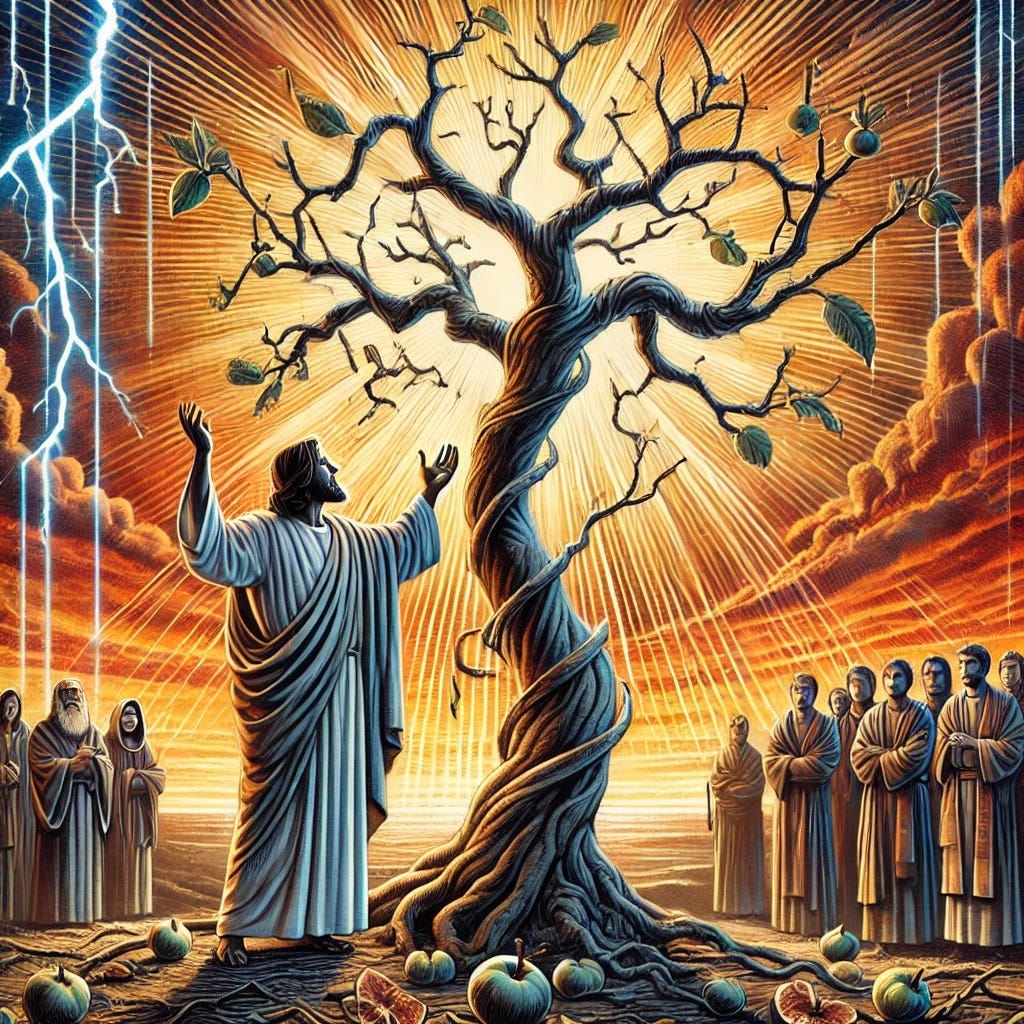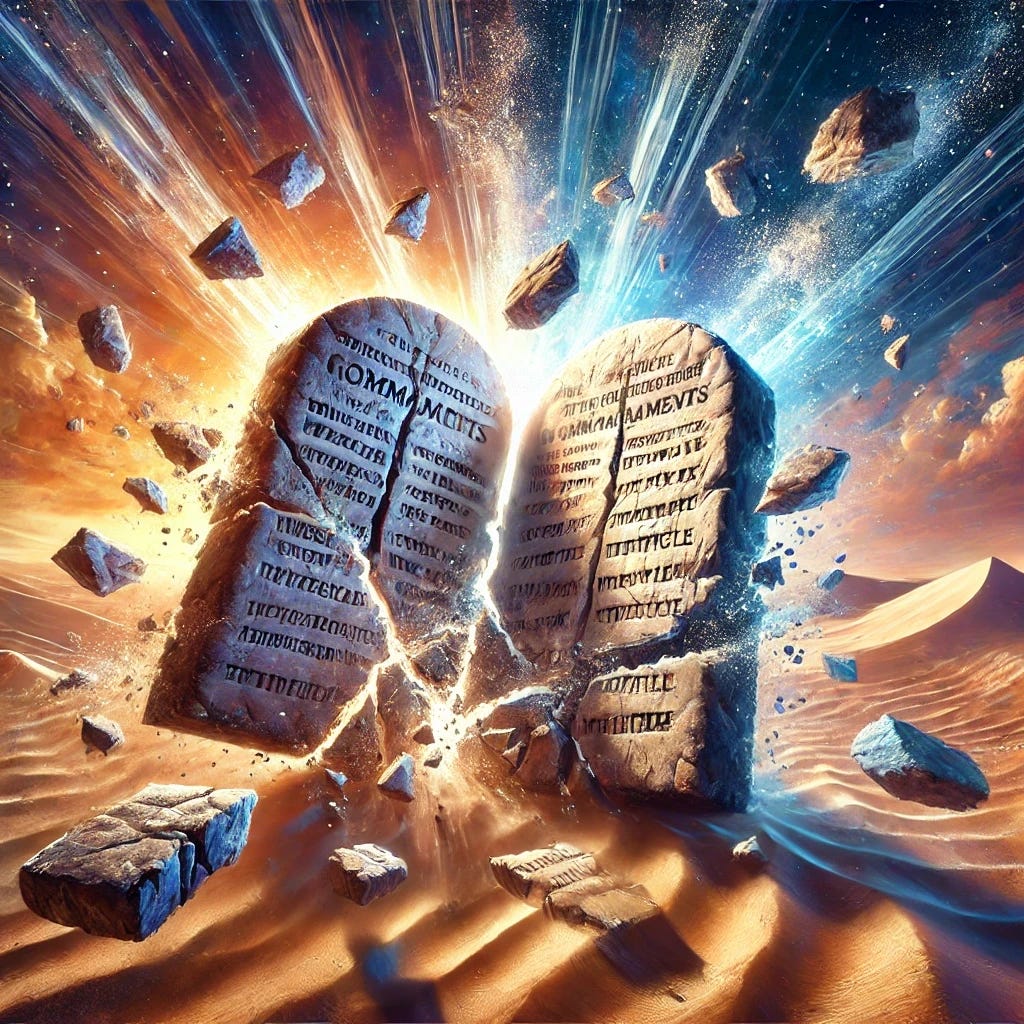Flawed Divinity
Abrahamic Mythologies as Human Aspiration
Religious mythologies, particularly those rooted in Judaism, Christianity, and Islam, have long been upheld as moral and spiritual guides for billions of people. However, a critical examination of these traditions, especially through the lens of texts like the Bible, reveals contradictions, moral inconsistencies, and questionable actions attributed to divine figures. The following is a critique of the Bible which and provides a compelling framework to understand why these mythologies may be more reflective of human flaws and cultural biases than of divine truth.
The following reflections represent my personal opinions and observations, shaped by my own readings and experiences. While I have spent considerable time exploring religious texts and ideas, I do not claim to be a trained religious or biblical scholar. My perspectives are those of an engaged reader who finds value in questioning and critically examining the moral and philosophical implications of sacred stories. These thoughts are offered not as definitive answers, but as part of an ongoing dialogue about the complexities and contradictions within religious traditions.
Contradictory Narratives and the Fallibility of God
The Bible's creation stories in Genesis illustrate a fundamental contradiction. In one account, Adam and Eve are created simultaneously, while in another, Adam is created first, with Eve formed from his rib. These conflicting narratives undermine claims of biblical inerrancy and divine authorship, suggesting instead a text shaped by human error and competing traditions. Further complicating the notion of an infallible deity is the depiction of God’s regret after the flood, an event marked by mass violence and the indiscriminate destruction of life, including innocent children and unborn fetuses.
The biblical text that shows God expressing remorse for causing the great flood is found in Genesis 8:21. After the floodwaters recede, Noah builds an altar and offers a sacrifice to God, and the text states:
"And the Lord smelled a sweet savour; and the Lord said in his heart, I will not again curse the ground any more for man's sake; for the imagination of man's heart is evil from his youth; neither will I again smite any more every thing living, as I have done." (Genesis 8:21, KJV)
This verse implies that God reflects on the destruction caused by the flood and resolves not to destroy the earth in the same manner again, despite humanity's inclination toward wrongdoing. While the text does not explicitly use "remorse," it reveals God's consideration and decision to take a different approach. This moment highlights a shift in God's relationship with humanity, leading to the covenant with Noah in Genesis 9, where God promises never to destroy the earth with a flood again. This divine remorse and wrathful actions paint a picture of a fallible and morally ambiguous God.
Biblical stories often highlight disturbing moral standards, as exemplified in the tale of Lot and his daughters. After fleeing Sodom and Gomorrah, Lot’s daughters engage in incestuous acts without condemnation, justified by a lack of available men. After fleeing Sodom and Gomorrah, Lot and his daughters reside in a cave. Fearing they will not find men to continue their lineage, Lot’s daughters intoxicate their father and engage in incestuous acts:
“Thus were both the daughters of Lot with child by their father. And the firstborn bare a son, and called his name Moab: the same is the father of the Moabites unto this day. And the younger, she also bare a son, and called his name Benammi: the same is the father of the children of Ammon unto this day.”
(Genesis 19:36–38, KJV)
This account lacks explicit moral condemnation from God or the text itself. The act is presented as a means of preserving the family line, which raises profound ethical concerns when read from a modern perspective.
The stories of Abraham’s near-sacrifice of Isaac and Jephthah’s vow to sacrifice his daughter depict loyalty tests that are sadistic and morally indefensible. Such narratives challenge the nature of a God who demands blind obedience at the expense of human life.
From Genesis 22:1-19…
“Take your son, your only son Isaac, whom you love, and go to the land of Moriah. Offer him there as a burnt offering on one of the mountains I will show you.” Without protest or question, Abraham prepares to fulfill this command, leading his innocent son up the mountain. The image of a father willing to sacrifice his child raises severe ethical concerns. It suggests a scenario where blind obedience to a divine command overrides the natural paternal instinct to protect one's offspring, presenting a troubling depiction of faith that demands the potential killing of an innocent.
Similarly, in Judges 11:29-40, the tale of Jephthah unfolds. Jephthah, seeking victory over the Ammonites, makes a rash vow to God: “If you give the Ammonites into my hands, whatever comes out of the door of my house to meet me when I return in triumph... will be the Lord’s, and I will sacrifice it as a burnt offering.” Tragically, his only daughter greets him upon his return. Bound by his vow, Jephthah sacrifices her. This narrative exposes the catastrophic consequences of reckless promises and portrays a God who does not intervene to prevent an unjust death. It challenges the morality of upholding a vow when it results in such a grievous outcome, especially the taking of an innocent life.
These narratives force us to grapple with difficult questions: Is absolute obedience to authority justified when it mandates immoral actions? Can faith be considered virtuous if it leads to harm against innocent individuals? The stories of Abraham and Jephthah illustrate the dangers of unexamined obedience and highlight the moral dilemmas that can arise when religious devotion conflicts with ethical convictions.
Even Jesus, often regarded as a figure of compassion, exhibits troubling behavior. His use of slavery as a metaphor, his condemnation of a fig tree for not bearing fruit out of season1, and his sometimes exclusionary rhetoric contradict the image of a loving and peaceful teacher. Moreover, Jesus’ rejection of familial bonds, encouraging followers to “hate” their families if they don't commit to his ways, starkly opposes the family values often associated with religious teachings.
One example— Luke 19:27, where Jesus, in a parable about a nobleman, says:
"But those mine enemies, which would not that I should reign over them, bring hither, and slay them before me."
In the context of the parable, the nobleman represents Jesus, and the enemies symbolize those who reject his reign. While this is part of a parable, it reflects a strikingly harsh tone and suggests that rejection of Jesus’ authority could warrant severe punishment. Critics interpret this as an example of exclusionary and violent rhetoric, inconsistent with the image of Jesus as a figure of universal love and peace.
Additionally, in Matthew 10:34-36, Jesus states:
"Do not think that I have come to bring peace to the earth; I have not come to bring peace, but a sword. For I have come to set a man against his father, and a daughter against her mother, and a daughter-in-law against her mother-in-law. And a person's enemies will be those of his own household."
Here, Jesus speaks of division, not unity, even within families, implying that following him may require severing close personal ties. This passage challenges the portrayal of Jesus as solely a harbinger of peace and highlights the often polarizing nature of his message.
The Illusion of Immortality and the Value of Mortality
One of the most compelling critiques of religious mythology is its promise of an afterlife, which functions as a psychological escape from the reality of death. While the concept of the afterlife is not explicitly developed in all parts of the Bible, some verses suggest or promise an afterlife…
"And many of them that sleep in the dust of the earth shall awake, some to everlasting life, and some to shame and everlasting contempt." (Daniel 12:2)
"For God so loved the world, that he gave his only begotten Son, that whosoever believeth in him should not perish, but have everlasting life." (John 3:16)
Accepting mortality enhances the preciousness of life and consciousness.
Humanity can find meaning in the finite. The decline in religious affiliation in the United States reflects a growing liberation from the constraints of organized religion and its often oppressive doctrines. This trend suggests that humanity is beginning to embrace a worldview grounded in reason and personal freedom rather than mythological constructs.
While some argue that texts like the Old Testament should be understood within their historical context as Bronze Age legends, this perspective raises the question of how much value they hold in guiding contemporary morality. Comparing these texts to other Bronze Age works, such as Homer’s epics, highlights their limited literary and philosophical depth. As society progresses, the need to critically evaluate and move beyond these ancient mythologies becomes increasingly apparent.
The Jewish, Christian, and Muslim mythologies, built upon texts like the Bible, reflect the moral and cultural limitations of the societies that created them. From contradictory narratives and morally reprehensible laws to the questionable actions of divine figures, these traditions reveal themselves as human constructs rather than divinely inspired truths. By acknowledging the flaws and hypocrisies within these mythologies, humanity can embrace a more rational, compassionate, and authentic understanding of existence—one that finds value not in the promise of immortality but in the preciousness of life itself.
I acknowledge that it's a literary device used to bookend the larger story of…if I recall correctly…the incident at the temple when Jesus is upset with the pedlars and merchants.





